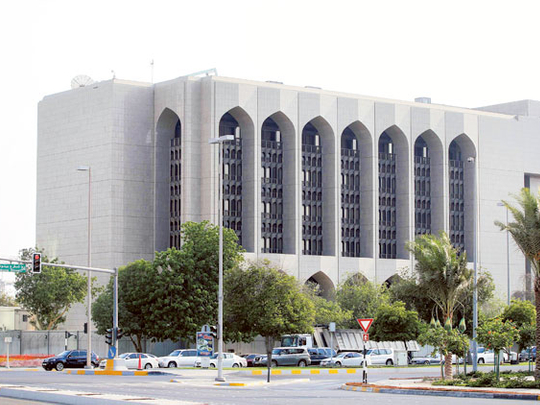
Abu Dhabi: The Central Bank and the Emirates Banks Association are currently in talks on proposed mortgage loan caps announced in December 2012, a senior central bank official told the Gulf News.
“We are in talks with the banks on this matter and no effective rules are shimmering in the horizon before 6-9 months from now. Most probably it will be effective before the end of 2013,” said the official, who requested that his name not be used.
“We have not issued any statements that force any financial institution or commercial bank to abide by them in terms of mortgage caps,” he said, added “the ratios proposed in the circular were mere suggestions and that they are still under scrutiny and the current system for property financing has remained unchanged”.
“The circular was a notification to the banks. After no less than six months from now, the banks have to be careful that there will be a new mortgage loan system which all the banks have to dully consider,” said the official.
The official referred to Sultan Nasser Al Suwaidi, Central Bank’s governor’s statement that “the new mortgage loan system will not be issued without duly consulting the concerned parties including the operating banks in the UAE and covering all its aspects.”
Commenting on what has been published by some newspapers, the official said that these articles would show that the Central Bank is backing away from the proposed ratios, which is not true.
“We are in negotiations with the commercial banks and what I can say is that the circular shows no effective date, which means it is up to consultations on the limits of the mortgage lending caps,” he pointed out.
He remarked that the circular and the ratios aimed to warn those who try to speculate and tamper with the stability of the market that “watch out it is the law”, warning that such regulations are taken to avoid any repetition of 2008-2009 property bubble in property market.“We at the Central Bank take very precautionary steps by adopting conservative measures to avoid any expected risks,” said the official.
Waddah Taha, chief analyst and economist at Zaarouni Group, told following a meeting with other financial experts and bankers, that the Central Bank did not withdraw but is working with the ministry of finance on the Credit Bureau which will function as a proper means to identify and determine the ratios based on credit history of the person and his financial obligations.
“In our meeting today, some banks voiced that they are ready to go for 90 per cent cap to finance mortgages and this is quite risky since the UAE real estate market is recovering,” said Taha.
He added that the Credit Bureau is expected to be officially operational by end of March, beginning of April, 2013 to control lending process where borrowers’ data base will be available to all banks.
Central Bank figures showed that UAE banks appear to be maintaining a cautious approach towards mortgage credit as loans to the real estate sector slumped by nearly Dh1 billion in the first quarter of 2012 to extend a decline through 2011.
Some experts in the field of property and real estate had told the Gulf News that the purpose of the December 30, 2012 circular was to curb any hikes in property prices and to deter speculators.
Craig Plumb, head of research at consultancy Jones Lang LaSalle’s Mena operations, told the Gulf News that this policy will reduce sale price hikes, but will make little impact on rents. “Sales price growth in 2013 would have been less than 2012; however, due to this policy, growth will be less,” Plumb said.










